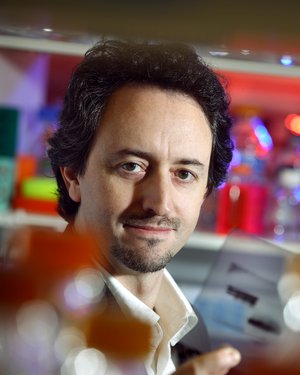Research Lab Results
-
Translational Neurobiology Laboratory
The goals of the Translational neurobiology Laboratory are to understand the pathogenesis and cell death pathways in neurodegenerative disorders to reveal potential therapeutic targets for pharmaceutical intervention; to investigate endogenous survival pathways and try to induce these pathways to restore full function or replace lost neurons; and to identify biomarkers to mark disease function or replace lost neurons; and to identify biomarkers to mark disease progression and evaluate therapeutics. Our research projects focus on models of Huntington's disease and Parkinson's disease. We use a combination of cell biology and transgenic animal models of these diseases. -
Philip Wong Lab
The Philip Wong Lab seeks to understand the molecular mechanisms and identification of new therapeutic targets of neurodegenerative diseases, particularly Alzheimer's disease (AD) and amyotrophic lateral sclerosis (ALS). Taking advantage of discoveries of genes linked to these diseases (mutant APP and PS in familial AD and mutant SOD1, dynactin p150glued ALS4and ALS2 in familial ALS), our laboratory is taking a molecular/cellular approach, including transgenic, gene targeting and RNAi strategies in mice, to develop models that facilitate our understanding of pathogenesis of disease and the identification and validation of novel targets for mechanism-based therapeutics. Significantly, these mouse models are instrumental for study of disease mechanisms, as well as for design and testing of therapeutic strategies for AD and ALS. -
Joel Pomerantz Laboratory
The Pomerantz Laboratory studies the molecular machinery used by cells to interpret extracellular signals and transduce them to the nucleus to affect changes in gene expression. The accurate response to extracellular signals results in a cell's decision to proliferate, differentiate or die, and it's critical for normal development and physiology. The dysregulation of this machinery underlies the unwarranted expansion or destruction of cell numbers that occurs in human diseases like cancer, autoimmunity, hyperinflammatory states and neurodegenerative disease. Current studies in the lab focus on signaling pathways that are important in innate immunity, adaptive immunity and cancer, with particular focus on pathways that regulate the activity of the pleiotropic transcription factor NF-kB.


